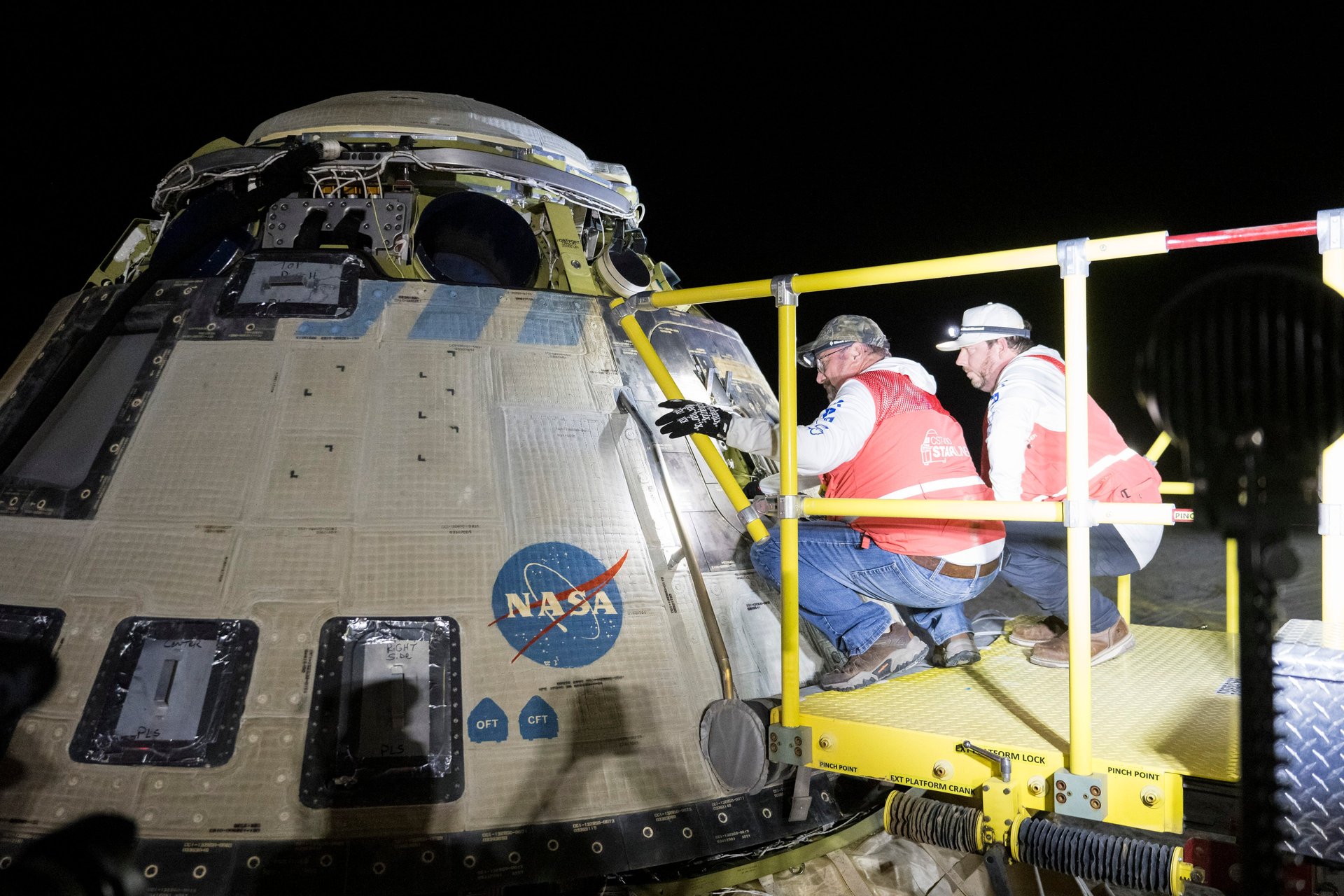Elon Musk wants the FAA to leave SpaceX alone and focus on Boeing's Starliner mess
However, the Starliner is operating under NASA's authority, not the FAA

After SpaceX was hit with a proposed fine by federal regulators, Elon Musk is complaining that they should be focused on Boeing (BA) and leave his company alone.
Suggested Reading
“The [Federal Aviation Administration] leadership spends their resources attacking SpaceX for petty matters that have nothing to do with safety, while neglecting real safety issues at Boeing,” Musk wrote late Thursday on X (META), the social media platform he owns.
Related Content
“This is deeply wrong and puts human lives at risk,” he said, adding that “enough is enough.”
Musk specifically called out the issues surrounding Boeing’s Starliner, which traveled to the International Space Station in June with two astronauts for an eight-day mission. Two months later, after repeated delays and issues, Starliner returned to Earth in September without its crew, after NASA determined it was too risky. Those astronauts will return to Earth in March 2025 on a SpaceX spacecraft instead.
However, Musk is arguing a moot point. The FAA doesn’t have regulatory oversight over Boeing’s Starliner, which is operating under NASA’s authority.
The FAA on Tuesday proposed fining SpaceX, which dominates the market for commercial space launches, $633,009 over a series of issues that occurred last year. Namely, that SpaceX on three occasions submitted requests to revise their plans for space launches and carried out those alterations without receiving regulatory approval.
Musk has called the agency’s actions “lawfare,” or the use of legal systems and institutions to delegitimatize an opponent, a term often employed by his chosen presidential candidate, former President Donald Trump, against officials prosecuting him. The litigious Tesla (TSLA) and SpaceX CEO also said his company will sue the FAA.
In a letter to congressional officials Thursday, SpaceX wrote that it “forcefully rejects” the FAA’s allegation that it violated any regulations. The company argues that it provided the agency’s Office of Commercial Space Transportation with “sufficient notice” and alleged that the penalties were proposed because the office “was unable to do its job” efficiently. SpaceX pointed to approval for one of its changes, which came 110 days after it submitted the plan.
The jostling comes about a week after SpaceX criticized the FAA and said regulations were holding it back from flying its rockets, pointing to fines and inquires from government agencies. The aerospace firm also said the FAA had pushed back its fifth test of the Starship megarocket from September to November because of “superfluous environmental analysis.”
Musk on Friday morning agreed with a post on X criticizing Polly Trottenberg, the Department of Transportation’s deputy secretary, and asked, “Shouldn’t the head of an organization responsible for regulating the safety of airplanes & rockets know something about how they work?”
Despite Musk’s post — and the post he replied to — Trottenberg has not led the FAA since October 2023, when she served as acting administrator following the resignation of her predecessor. Trottenberg in September 2023 said the agency was working together with SpaceX and working to get its second license to launch the Starship megarocket as soon as the following month. Approval was granted in November 2023.
According to her staff biography page, Trottenberg is now focused on a number of areas Musk should find familiar as the CEO of Tesla. That includes creating a national electric vehicle charging network and leading the Transportation Department’s efforts on roadway safety, technology, and cybersecurity.
